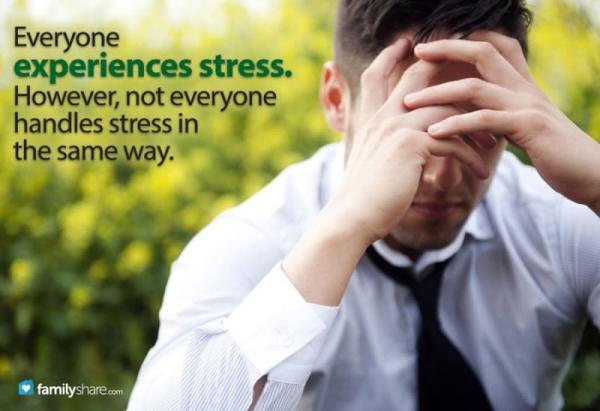
Everyone experiences stress. However, not everyone handles stress in the same way. Some individuals seem unaffected (or even motivated) by pressure-filled situations while others feel overwhelmed, frustrated, or depressed. The difference lies in how we handle the effects of stress. The degree to which you experience stress, or react to it, is determined by the kinds of stressors you experience and your degree of physical, mental, and social resiliency. The following are some effective ways to minimize the effects of stress in your life.
1. Realize that some things are beyond your control
Events such as, the loss of a job, illness, the death of a loved one, or a natural disaster (an earthquake or hurricane) are uncontrollable events that you can neither anticipate nor prevent. However, you can try to mitigate the deep emotional consequences of these types of calamities by dealing with your emotions in a healthy way. Talk about your feelings with another person who understands what you are going through. Participate in activities that bring you pleasure and relieve stress, such as meditation, doing something kind for another person, or taking a short vacation.
2. Eliminate time stressors through better time management
Start by organizing your home or workspace so that everything has a designated place and make a consistent effort to always return objects to their proper home. Having to constantly look for the things you need is a time waster and can add to stress. Every day make a list of the things that need to be done and prioritize your list in order of importance. Do the most urgent tasks first and complete the less important items if you have time. Break up large projects into small, manageable tasks so you don't get overwhelmed and complete at least one task or project each day in order to feel a sense of accomplishment.
3. Plan ahead
Try to anticipate situations that might be stressful or challenging and plan accordingly. For example, if you will have company for the holidays, try to make some or all of the meals in advance and freeze them so that you won't have to cook while also entertaining a house full of people. Each week have a planning session in which you look over your calendar and decide which days to work on certain projects or tasks. The time you take to plan initially will save you time in the long run. Waiting until the last minute and rushing through a project or task will increase your stress and make it more difficult to do quality work, so avoid putting things off. Set deadlines for yourself and create accountability. For example, report to a friend or family member so that you are accountable to someone other than yourself. This will motivate you to get things done on time.
4. Build up your resistance to stress
Meeting your physical and emotional needs will help you cope with stress more effectively. Take care of your body by exercising regularly, eating a balanced diet that includes whole grains, avoiding fats and sugar and eliminating or reducing alcohol, tobacco and caffeine intake. See to your emotional health through uplifting intellectual pursuits, a healthy sense of humor, social interaction with friends and some form of religious worship or meditation. Be willing to admit your mistakes and learn from them and develop gratitude for the good things in your life.

